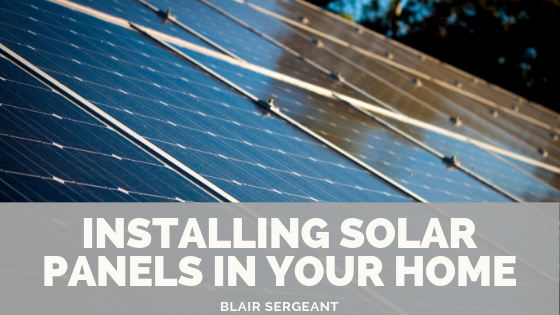The increased advocacy for utilization of alternative sources of energy, preferably renewable sources, has led to more people thinking of purchasing and installing solar panels in their homes and offices. Here are some tips on what to do when thinking of deciding to install solar panels in your home.
Do a thorough plan first
Firstly, you should do thorough planning of the entire process in terms of what you need to achieve and how to go about it. In your consideration, you may think of issues such as how much energy you need to harness to suffice your home electric power needs. Your needs will determine the capacity of the solar panels you will purchase.
Consider the positioning
The next thing to do is to consider the strategic positioning of your solar panels to ensure that they can appropriately harness solar energy. Experts advise positioning the solar panels on the roof of the house from where there is access to direct sunlight. In case your roof does not have the structural integrity to support the weight of the required panels, then you may need to build an elevated solar stand.
Whether to go on-grid or off-grid
You should also contemplate on whether your house will be connected into an existing solar energy grid or whether you prefer your house solar system existing as a standalone. The off-grid system is particularly convenient in cases where there is no solar grid utility system passing nearby. It also implies that your house will need to be fully powered by the solar panels that you will install.
Whether to lease or to buy
You may also check on whether you intend to buy the solar power system or lease it from existing solar power dealers nearby. Purchasing your own may incur much expense as compared to leasing. The option may be preferable, especially if you do not want to subscribe to a monthly payment to the company from where you lease the solar power system.
Installation and maintenance
After all the considerations have been made, the installation process should be carefully undertaken by a certified solar power system installer to ensure that the system is fine-tuned for optimal performance. After installation, maintenance will be necessary where the solar panels are inspected for power output and necessary adjustments or repairs made.
